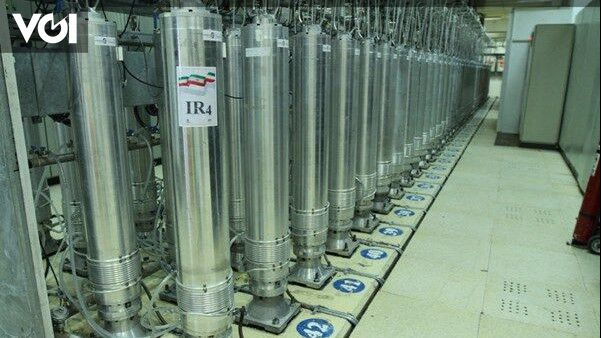JAKARTA – Three Iranian sources said on Tuesday the country’s clerical leadership had no clear reserve plans if efforts to resolve the decades-long dispute failed, during tensions with the United States over uranium enrichment “dangered” nuclear negotiations.
With negotiations failing as the red line collides, Iran may switch to China and Russia as “Plan B”, the source said.
However, Beijing’s trade war with Washington while Moscow is disrupted by its war in Ukraine, Tehran’s reserve plan looks shaky.
“Plan B is to continue the strategy before the start of the negotiations. Iran will avoid rising tensions, it is ready to defend itself,” a senior Iranian official said.
“The strategy also includes strengthening relations with allies such as Russia and China,” he added.
On Tuesday, Iran’s Supreme Leader Ayatollah Ali Khamenei rejected US demands to stop uranium enrichment as “excessive and outrageous”, warning the negotiations were unlikely to bear fruit.
After four rounds of negotiations aimed at curbing Iran’s nuclear program in exchange for sanctions relief, there are still many obstacles left.
Tehran declined to send all its highly enriched uranium supplies overseas or engage in discussions about its ballistic missile program, two Iranian officials and a European diplomat said.
The lack of trust on both sides and President Donald Trump’s decision to withdraw from the 2015 agreement with major countries have also increased the importance for Iran to secure that Washington will not renege on future agreements.
To exacerbate Tehran’s challenges, Iranian clerical institutions are grappling with an escalating crisis – energy and water shortages, falling currencies, military losses among regional allies and growing fears of an Israeli attack on its nuclear site – all exacerbated by President Trump’s hardline policy.
With Trump’s “maximum pressure” campaign restarting Tehran since February, including stricter sanctions and military threats, the source said Iran’s leadership “has no better choice” than a new deal to prevent domestic economic turmoil that could threaten its rule.
National protests over social oppression and economic difficulties in recent years, responded to by a crackdown, exposed Iran’s vulnerability to public outrage and sparked a series of Western human rights sanctions.
“Without lifting sanctions to allow free oil sales and access to funds, Iran’s economy cannot recover,” said a second official, who, like other officials, asked not to be named due to sensitivity.
Meanwhile, Iran’s Foreign Ministry was not immediately willing to comment.
Separately, Wendy Sherman, who led the US negotiating team to reach a 2015 deal between Tehran and six world powers, said it was impossible to convince Tehran to “dismantle its nuclear program and stop its uranium enrichment even though it is ideal”.
“So that means they will be deadlocked, and we will face potential war, which to be honest, in my opinion, President Trump did not expect because he has campaigned as a president who supports peace,” he said.
Even if the uranium enrichment dispute narrows, lifting sanctions remains difficult. The US supports the removal of nuclear-related sanctions, while Tehran demands the immediate lifting of all restrictions.
It is known that dozens of Iranian institutions vital to Iran’s economy, including its central bank and national oil company, have been subject to sanctions since 2018 for “supporting terrorism or weapons proliferation”.
When asked about Iran’s choice if negotiations fail, Sherman said Tehran will likely “continue to avoid sanctions and sell oil, mostly to China, perhaps India and other countries”.
If negotiations fail – the scenario that Tehran and Washington hope to avoid – neither Beijing nor Moscow can protect Iran from unilateral US and European Union sanctions.
France, Britain, and Germany (E3), although not part of the US-Iran negotiations, have warned they will reimpose UN sanctions if no agreement emerges quickly.
Based on UN resolutions in the 2015 nuclear pact, E3 countries had until October 18 to trigger the so-called “shuffleback mechanism” before the resolution ended.
According to diplomats and documents seen by Reuters, E3 countries could have done this in August if no substantial agreement could have been found at the time.
Diplomats warned, getting a deal before that meant, in the best case scenario, an initial political framework as in 2013 where both sides offered several concrete concessions that gave time for more detailed negotiations.
“There is no reason to think this will take less than 18 months in 2013, especially when the current geopolitical parameters and situation are more complicated,” said a senior European official.
The English, Chinese, Japanese, Arabic, and French versions are automatically generated by the AI. So there may still be inaccuracies in translating, please always see Indonesian as our main language.
(system supported by DigitalSiber.id)
